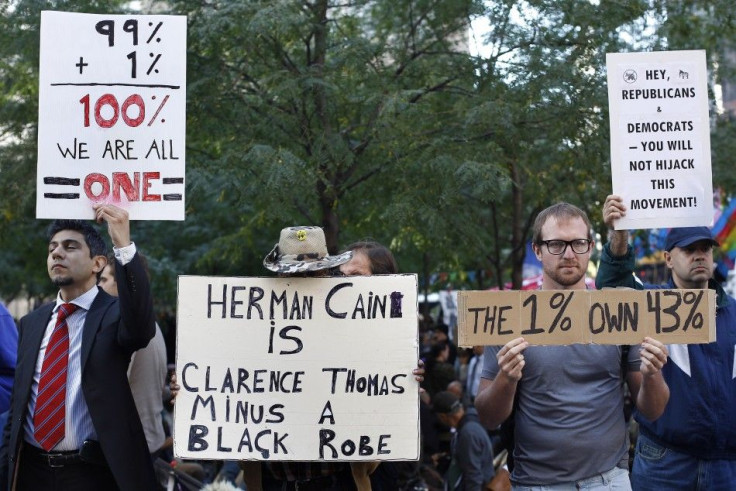Majority of Americans Say U.S. Government Should Reduce Income Inequality: Poll

A majority of Americans say the federal government should pursue policies to reduce income inequality in the U.S., according to a new ABC News/Washington Post poll, where 61 percent of respondents said the income gap between the wealthiest and the average American is larger than it has been historically.
The poll analyzed the responses of 1,004 adults, including about 438 people who identified themselves as either Republicans or GOP-leaning independents. While the Republican Party is generally critical of big government, approximately 60 percent of respondents also said the federal government should have a hand in reducing income inequality.
Respondents weren't questioned about particular policy decisions that could reduce the U.S. income gap. However, in an October CBS News poll, 64 percent of respondents said they supported raising taxes on millionaires to jump-start the economy and reduce the national deficit.
Occupy Wall Street Increases Voter Awareness of Inequality
Income inequality has recently made its way into the national spotlight as a result the Occupy Wall Street movement, which has sprung up in cities across the nation to protest a financial system that they claim functions to cater to the nation's highest earners.
Last month, the Congressional Budget Office reported the wealthiest one percent of Americans saw their incomes grow by 275 percent between 1979 and 2007, while the 60 percent of earners in the middle of the income scale -- the middle class -- saw their incomes rise by a paltry 40 percent in comparison.
The 20 percent of the population with the lowest income only saw their earnings grow by about 18 percent during that period.
According to the ABC/Post poll, 37 percent of respondents said they believed the income gap is much larger than it has been in the past, compared to five percent who said it was smaller. Forty-three percent said they strongly felt the federal government should intervene in the matter, while 24 percent were strongly opposed.
In the U.S., 44 Percent of Respondents Support the Occupy Movement
Although the respondents may share the same concerns as the Occupy movement, only 44 percent identified themselves as supporters. Of that figure, only 18 percent said they strongly supported the movement. Out of the 41 percent of respondents who said they opposed the Occupy movement, 22 percent said they were strongly against it.
While other polls have concluded the Occupy movement now has more support among Americans than the Tea Party, 43 percent of respondents in the most recent poll said they supported the Tea Party.
The growing income gap between the country's wealthiest and lowest-earning citizens hasn't escaped international notice. Earlier this month, the United Nations' Human Development Report ranked the U.S. as the fourth best country to live in, based on an analysis of health, education, economic growth and human rights. But, when the scale was adjusted to account for income inequality, that ranking fell to 23.
© Copyright IBTimes 2024. All rights reserved.











